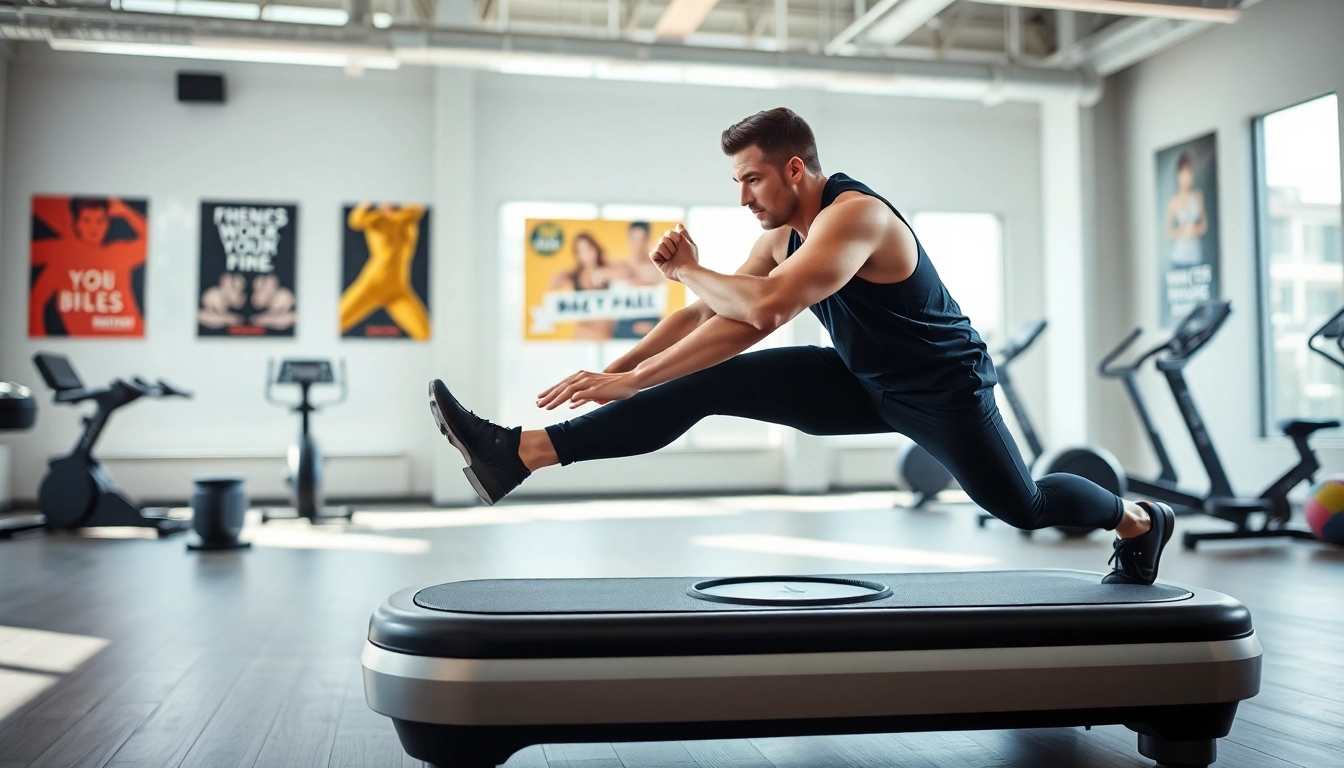Understanding Gym Training Consultation
What is Gym Training Consultation?
Gym training consultation refers to a personalized fitness assessment process designed to help individuals achieve their wellness and fitness goals. This consultation typically involves an initial meeting with a qualified fitness trainer who evaluates the individual’s current fitness level, medical history, lifestyle habits, and personal goals. The trainer may use various assessment techniques, including body composition analysis, fitness tests, and lifestyle questionnaires, to gather relevant data. By taking these factors into account, the trainer can provide tailored advice on exercise programs, nutritional guidance, and lifestyle modifications.
Benefits of Personalized Consultation
Engaging in a gym training consultation offers numerous benefits, which are crucial for anyone looking to improve their fitness journey. A personalized consultation can lead to:
- Tailored Programs: Custom fitness plans based on individual needs and preferences maximize efficiency and effectiveness.
- Expert Guidance: Experienced trainers provide insights that help navigate challenges, ensuring a safe and rewarding experience.
- Motivation: Personalized plans and regular check-ins foster accountability and help maintain motivation over the long term.
- Improved Knowledge: Clients learn the rationale behind exercises, which enhances their understanding and can lead to better health literacy.
- Setting Realistic Goals: A consultant helps set achievable milestones, which are essential for maintaining motivation and tracking progress.
Who Can Benefit from a Consultation?
Virtually anyone can benefit from a gym training consultation, irrespective of their fitness level or background:
- Beginners: Those new to exercise can gain a solid foundation and learn proper techniques to avoid injury.
- Intermediate Exercisers: Those with experience can refine their techniques and strategies for specific goals, such as muscle gain or weight loss.
- Athletes: Competitors seeking to improve performance can benefit from specialized training programs.
- Individuals with Health Concerns: Those with chronic conditions or injuries will find tailored advice essential for their safe participation in fitness.
- Older Adults: Specialized consultations can aid in maintaining fitness, strength, and balance to enhance quality of life.
Preparing for Your Gym Training Consultation
Setting Your Fitness Goals
Before attending a gym training consultation, it is essential to define your fitness goals clearly. Goals might range from losing weight and building muscle to increasing endurance or improving overall health. Utilizing the SMART criteria (Specific, Measurable, Achievable, Relevant, Time-bound) can facilitate goal-setting. For instance, rather than saying, “I want to lose weight,” a SMART goal would be, “I want to lose 10 pounds in three months by exercising four times a week and eating balanced meals.” Establishing concrete objectives provides a focused direction for both you and your trainer.
Gathering Relevant Health Information
Collecting pertinent health information includes a review of your medical history, current medications, injury history, and any specific health concerns. This insight is crucial for the trainer to create a safe and effective training plan. You may also consider tracking your daily activities, dietary habits, and current fitness routine leading up to the consultation. Be honest and forthcoming with this information to capitalize on your consultation.
Understanding Your Fitness Level
Determining your current fitness level through self-assessment can significantly enhance the consultation’s effectiveness. Conducting simple tests such as timed walks or the number of push-ups you can do can provide insights into your endurance and strength. It may also help to assess your flexibility through stretches. An honest evaluation enables your trainer to tailor an appropriate starting point for your fitness journey.
Key Components of an Effective Consultation
Assessment Techniques Used by Trainers
Fitness assessments serve as the foundation of personalized training consultations. During the assessment stage, various techniques may be utilized depending on the trainer and individual preferences:
- Body Composition Analysis: This involves measuring body fat percentage and muscle mass, providing crucial data for setting goals.
- Cardiovascular Fitness Tests: Tests, such as the Cooper test, help assess aerobic capacity and cardiovascular health.
- Strength Evaluations: Trainers may conduct exercises that determine muscular strength and endurance to tailor resistance training plans.
- Flexibility Tests: Assessing how far you can stretch can inform the incorporation of flexibility and mobility work into your program.
Creating a Customized Workout Plan
After grasping the assessment results, your trainer will create a personalized workout plan that corresponds to your goals, fitness level, and lifestyle. This plan should consider factors like exercise preferences, available equipment, frequency of workouts, and recovery strategies. By developing a clear roadmap for your fitness journey, you establish a structured routine that can significantly enhance adherence and yield effective results. A customized plan is dynamic, allowing for modifications based on your progress and feedback over time.
Nutrition and Lifestyle Considerations
Nutrition plays a vital role in any fitness program. During the consultation, trainers may discuss dietary habits to understand your nutritional intake better. Elements such as macronutrient balance, meal timing, and hydration strategies are essential considerations. Lifestyle factors, including sleep quality, stress levels, and daily activity outside of planned workouts, can also impact your fitness progress. Your trainer may provide advice on incorporating healthier habits and creating a sustainable lifestyle conducive to achieving your goals.
Maximizing Your Consultation Experience
Asking the Right Questions
To maximize the value of your consultation, come prepared with questions. Inquire about the trainer’s background and experience, the rationale behind specific exercises, potential modifications for injuries, and tips for staying motivated. Asking about the trainer’s methodology and success stories can also provide insight into their approach. This interaction fosters a collaborative atmosphere that encourages open communication, ensuring that both trainer and client are aligned on goals.
Staying Engaged Throughout the Process
Active participation during the consultation ensures that you absorb information effectively. Pay attention to technique demonstrations, ask for clarifications, and provide honest feedback about your preferences and concerns. The more engaged you are, the better your trainer can customize your program and address your needs, ultimately enhancing your chances of long-term success.
Follow-Up Strategies for Continued Success
Post-consultation, maintaining the momentum is crucial for achieving your fitness goals. Follow-up strategies might include scheduling regular check-ins with your trainer to assess progress and revisit goals. Additionally, consider keeping a workout diary to track exercises, durations, and feelings during workouts, which can provide valuable insights into what works for you. Emphasizing flexibility in your approach allows adjustment of workouts and goals as your fitness journey evolves.
Quantifying Your Progress Post-Consultation
Tracking Changes in Fitness and Health
Measuring progress is essential for validating the effectiveness of your training program and associated lifestyle adjustments. Monitoring changes can be approached in several ways, such as tracking weight, body measurements, endurance levels, and strength gains. Digital tools and apps for tracking workouts and nutrition can streamline this process, allowing for clear visibility over time.
Adapting Your Goals Over Time
Your fitness journey is dynamic, and as you progress, it is vital to adapt your goals accordingly. Reevaluate your initial objectives and consider new ones as you achieve existing goals. This may involve refining your fitness plan, challenging your limits, or introducing new activities that keep your training fresh and engaging. Continuous adaptation fosters long-term commitment and resonates with the evolving landscape of your fitness aspirations.
Celebrating Milestones in Your Fitness Journey
Recognizing achievements along your fitness journey is a powerful motivator. Celebrate milestones, whether big or small. This could include reaching a specific weight, completing a fitness challenge, or recognizing improved stamina and strength. By acknowledging these accomplishments, you’re more likely to remain dedicated to your goals and create a positive reinforcement loop that encourages perseverance in your fitness journey.















Leave a Reply